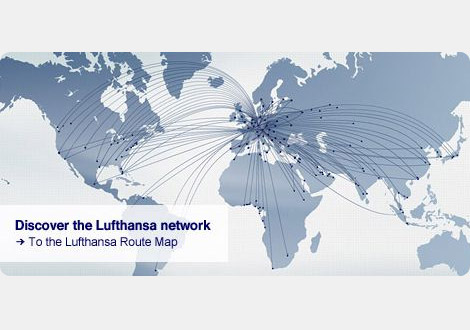Top 10 Universities in Germany to Study in English
I often mention that university education in Germany is mostly (especially undergraduate education) in German and that German is a very difficult language. Most young people’s foreign language is English, as English is also widely taught in intensive language schools and colleges. Since German is already difficult and is only taught seriously in a limited number of schools, German is the biggest handicap for students in higher education in Germany. Therefore, I think the following criteria apply to the majority of foreign students when choosing a university in Germany.
Which criteria should foreign students pay attention to?
1. Language problem
After all this talk about German, I have to say this: “It is a fact that you can study in Germany without knowing a word of German”. As of 2022, there are 323 undergraduate programs in English across Germany. The majority of these programs are at private universities, but some public universities also offer undergraduate programs in English in whole or in part.
When it comes to master’s degrees, the number of programs exceeds 1500. In addition to private universities, it is also possible to study for a master’s degree in English at public universities. However, I should mention that some of these programs at state universities are also paid.
2. Living Standards and transportation facilities
Life is not just about school, of course. The first thing you will notice when you go to Germany is that most cities are very small and amenities are limited. Finding what you want around the corner, unlimited food and entertainment, easy transportation are some of the things you will miss the most.
When choosing your school, cities where you will find a relatively familiar social life and where you will be able to live your life speaking only English stand out. Berlin, Hamburg and Munich are the most prominent ones. Perhaps Bonn, the former capital city with an international identity, and Frankfurt, the financial capital of Germany, can be added to these cities. The size and availability of public transportation networks, as well as easy access from different parts of the world, is another factor that makes these cities stand out.

3. Job opportunities
Especially if you are a graduate student, you may want to find part-time work alongside your relatively less intensive study program. The residence permit you will get for studying in Germany will give you the opportunity to work 120 full days a year. The cities I mentioned above will provide relatively more job opportunities for those who can only speak English due to their demographic structure and the fact that they attract a lot of tourists.
4. Famous and internationally recognized schools
Of course, after you have put a lot of effort into your higher education, the international recognition of your alma mater should be important to you. You can be sure that graduating from university in Germany will be considered a great achievement in itself. But it is also normal to think about more well-known schools. The cities I mentioned above are as famous for their schools as they are for themselves.
Do not limit yourself to the following schools. There are many more well-known and well-established universities throughout Germany and your options are much wider. Take a look at the interactive map of German universities ranked in the top 1000 in international rankings. However, I have created the list below because it is more suitable for candidates who want to study a master’s degree in English. I have not specifically included private universities in the list. Here are these schools:
Freie Universität Berlin
Freie Universität Berlin is a three-time winner of the German federal and state government’s Excellence Competition. Considered one of the best schools in Germany, it is home to more than 40,000 students. The school has a comprehensive range of programs and the foreign student ratio is 27%.
The school has 19 English programs, 2 of which are undergraduate.
Humboldt University Berlin
Humboldt University is one of Germany’s oldest and best-known universities. It is one of the 10 member universities of the German excellence program. It has a wide range of programs mostly focused on social sciences and humanities. The location of the campus in the city center is another feature I like. There are close to 40,000 students and 21% foreign students.
The school offers 29 different master’s programs in English.

Technical University of Berlin
It is by no means the best technical school in Germany, but the city and the facilities make it one of the best. With around 35,000 students, it has maintained its reputation as an outstanding center of science for many years. Although its name is technical, the school also offers programs in social subjects and hosts significantly fewer foreign students than the universities above.
The Technical University of Berlin offers 22 master’s programs in English.
HTW Berlin
With around 14,000 students, HTW Berlin is one of Germany’s most renowned universities of applied sciences and Berlin’s largest university of applied sciences, offering more than 70 programs in technology, information technology, business, law, culture and design. The range of subjects ranges from classic disciplines such as mechanical engineering, automotive engineering and business management to currently popular programs such as healthcare electronics, game design and professional IT business. The school has over 40% foreign students.
The school offers 8 programs in English, including 1 undergraduate program.

University of Hamburg
Hamburg is the second most populous city in Germany and has the advantage of being a major port city. The city’s universities are also well known in terms of both size and recognition. With nearly 44,000 students, the University of Hamburg offers a wide range of educational opportunities in many different fields, from science to the arts. About 6% of the students are international students.
The university has 1 undergraduate program in English and 30 master’s programs in English.
Technical University of Hamburg
In addition to traditional engineering programs, TUHH is a school focused on next-generation technical subjects such as process and bioprocess engineering, logistics, techno-mathematics. This wide range of practice-based programs makes the TUHH one of the best technical universities in Germany. Around 15% of the 7500 students are international students.
The school has a total of 11 English-language programs, including 1 bachelor’s degree.

Hamburg University of Applied Sciences (HAW)
As the second largest higher education institution in Hamburg and one of the largest universities of applied sciences in Germany, HAW offers a curriculum that blends theory with practice, especially in IT, life sciences, design, media, business and social sciences. The school has around 17,000 students, of which around 18% are international.
There are 7 programs in English, including 1 undergraduate program.
LMU Munich
LMU is not only well positioned academically. It is also one of the leading universities in Europe. The international research environment you will encounter at the school and the advantage of studying in a metropolis like Munich, which offers countless opportunities to gain practical experience during your studies, will be an important motivation for you to choose this school.
The school has more than 52,000 students, 17% of whom are foreigners. The school offers 28 master’s programs in English.
TU Munich
TU Munich (Technical University of Munich) is one of Europe’s most research-intensive and innovative universities. The university offers 178 different programs across a range of subjects including engineering, natural sciences, life sciences, medicine and economics and social sciences. The school is very popular internationally, making it a popular choice for international students. One third of the 42,000 students are international students. One of the reasons for this preference is the high number of programs offered in English.
It is possible to study in 57 English programs, 6 of which are undergraduate programs.
University of Bonn
The University of Bonn is well known for being the former capital of the city. Its proximity to Cologne and the fact that it is still home to the headquarters of many international companies adds to its popularity. You can find my articles about the school and the city here. The school is best known in the world for its achievements in Mathematics and about 4000 of its 32.000 students are foreigners.
The school offers 29 master’s degree programs in English.

Conclusion
Berlin, Hamburg, Munich and Bonn can be a good choice not only for living in English as a city, but also for the quality of education and international recognition of their schools. But whether any of these schools is right for you depends entirely on your expectations, your economic situation and your educational achievements. It is true that life in big cities is easier and social life is more vibrant, but it is also important to remember that living there is expensive.
It is also not easy to apply and get accepted to popular schools in big cities. It is also difficult to graduate from these schools. This will mean that you will have to work really hard and put in more effort during your studies. I write about the details of the cities, social life and housing opportunities, my own observations and the information I have obtained in my research as I have the opportunity.
Did I help you? If you have any questions, you will probably find the answer on these pages, but you can still contact me at recep[at]recepdayi.com.tr and on my social media accounts. I try to improve my articles according to your feedback, so please send me your comments. Thank you in advance.




